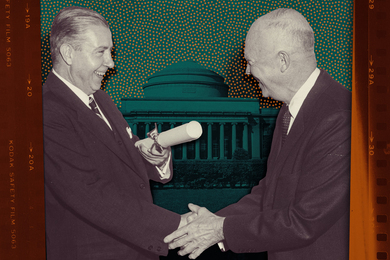The Deshpande Center for Technological Innovation at MIT recently awarded $600,000 in grants to researchers working on such projects as growing human liver cells for drug testing and creating a new material for computer displays.
"The grant winners this fall not only are among the most exciting we've seen, but also will benefit from the success of those who have come before," said Deshpande Center Executive Director Krisztina Holly. "Over the past three years, we have refined our process to provide the most effective support to innovators, starting with hands-on expertise at the very inception of a commercial idea."
The fall 2005 grants bring to $5.5 million the total funding provided to 47 research teams at MIT since the Deshpande Center began its innovation support programs in 2002.
The Deshpande Center awards Ignition Grants to research teams that are in the early stages of determining technical feasibility of breakthrough ideas, and Innovation Grants to teams that have already made significant academic progress and are on the cusp of applying their research to the most promising markets.
The center awarded Innovation Grants to: Associate Professor Sangeeta N. Bhatia of the Harvard-MIT Division of Health Sciences and Technology and of electrical engineering and computer science, for work developing human liver models for faster, safer drug development; Professor Clark Colton of chemical engineering for work on technology that could help pinpoint early stage tumors; and Professor Lionel Kimerling of materials sciences and engineering and the Materials Processing and Microphotonics centers -- with research associate Anu Agarwal -- for low-cost multispectral infrared detector arrays.
Ignition Grants went to: Professor Karen Gleason of chemical engineering for conductive material that could enable large-scale production of flexible displays and touch screens; and T. Alan Hatton, the Ralph Landau Professor of Chemical Engineering and director of the David H. Koch School of Chemical Engineering Practice, for catalytic particles for rapid decontamination in carbon filters and clothing.
A version of this article appeared in MIT Tech Talk on November 9, 2005 (download PDF).





